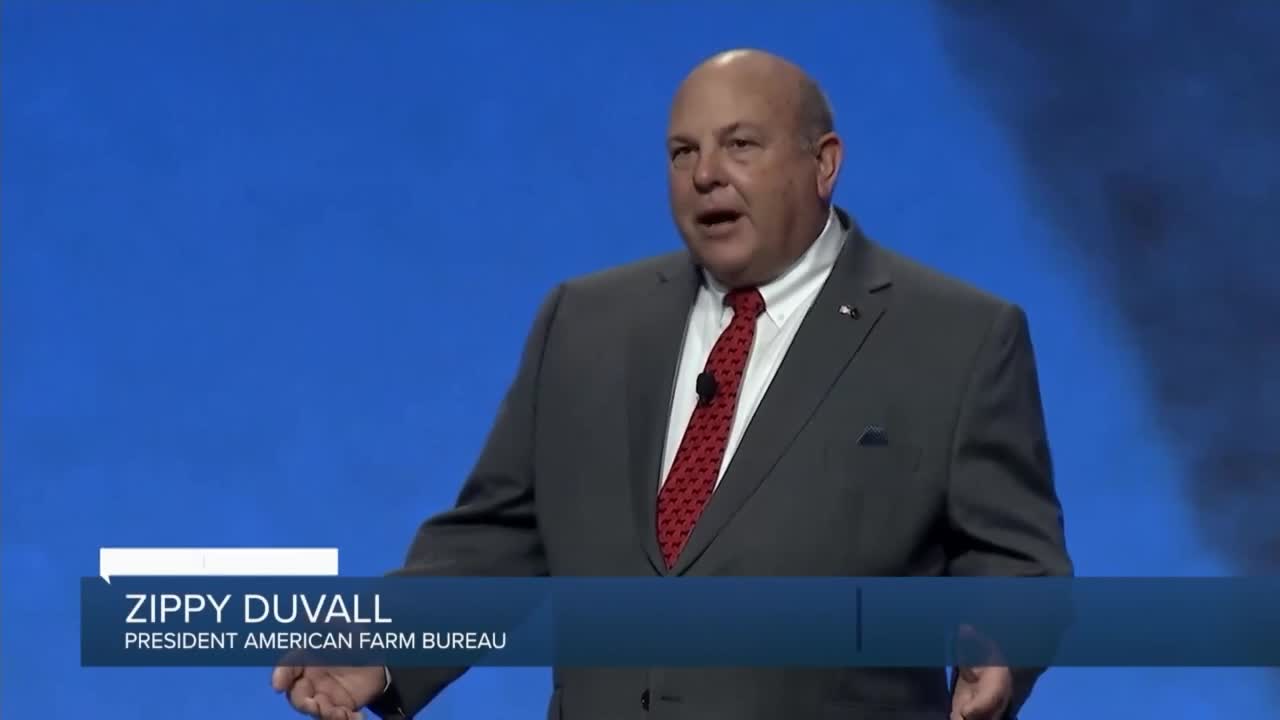ATLANTA — Members of the Montana Farm Bureau are in Atlanta this week to take part in the 103rd American Farm Bureau Convention.
As the nation's largest agriculture organization, gathers in Atlanta, farmers and ranchers, are working to set grassroots policy for the future of agriculture.
“Now this year, the theme of our convention is growing tomorrow. Together, people, purpose and possibilities. What a great description of our commitment — both to farmers and ranchers and as farm bureau,” said American Farm Bureau President Zippy Duvall. “Growing tomorrow requires taking on new challenges. And embracing possibilities because we believe each season can be better than the last on the advocacy front.
The American Farm Bureau worked to ensure that the stepped-up basis was preserved in President Biden’s infrastructure bill so that family farms and ranches can be passed onto the next generation while also investing in critical role transportation, that didn't create over burdensome taxes.
“Thanks to our united voice, Congress has passed -- and the President signed -- a bipartisan bill that will invest in our roads, our bridges, our ports, and our waterways,” Duvall said. “And we are excited to see long-overdue attention to western water infrastructure, which ensure will ensure a future production for our farmers out in the West.
One area that the American Farm Bureau is at odds with the Biden administration is over the repeal of the Trump-era Navigable Waters Protection Rule and the administration's work to replace it with a rule similar to the 2015 Waters of the US Rule (WOTUS).
“Now this year, the theme of our convention is growing tomorrow. Together, people, purpose and possibilities. What a great description of our commitment — both to farmers and ranchers and as farm bureau,” said American Farm Bureau President Zippy Duvall. “Growing tomorrow requires taking on new challenges. And embracing possibilities because we believe each season can be better than the last on the advocacy front.
The American Farm Bureau worked to ensure that the stepped-up basis was preserved in President Biden’s infrastructure bill so that family farms and ranches can be passed onto the next generation while also investing in critical role transportation, that didn't create over burdensome taxes.
“Thanks to our united voice, Congress has passed -- and the President signed -- a bipartisan bill that will invest in our roads, our bridges, our ports, and our waterways,” Duvall said. “And we are excited to see long-overdue attention to western water infrastructure, which ensure will ensure a future production for our farmers out in the West.
One area that the American Farm Bureau is at odds with the Biden administration is over the repeal of the Trump-era Navigable Waters Protection Rule and the administration's work to replace it with a rule similar to the 2015 Waters of the US Rule (WOTUS).
“By repealing the entire Waters of the U.S....we finally got some sideboards. And we finally got some rules that we knew. We knew how we could manage our water,” said Montana Farm Bureau President Cyndi Johnson of Conrad. “Now that's going to be erased and we'll start all over again, and we don't have a guarantee. We don't have the same opportunities and we're going to have a lot of intrusion into our lives and how we do production agriculture,
“Our leadership on sustainability and climate policy -- the American Farm Bureau stepped up and stepped in to make this time hours by ensuring that you are recognized for your achievements,” Duvall noted. “And treated like partners. See, adapting doesn't mean forgetting our roots. We remain strong in our purpose, which strengthens us to make this time, our time.”
Agriculture Secretary Tom Vilsack is set to address convention attendees later on Monday where he is expected to share more information on the Biden administration's climate priorities. Some other key issues the American Farm Bureau is addressing include creating fair cattle markets for ranchers and addressing record high fertilizer costs.



